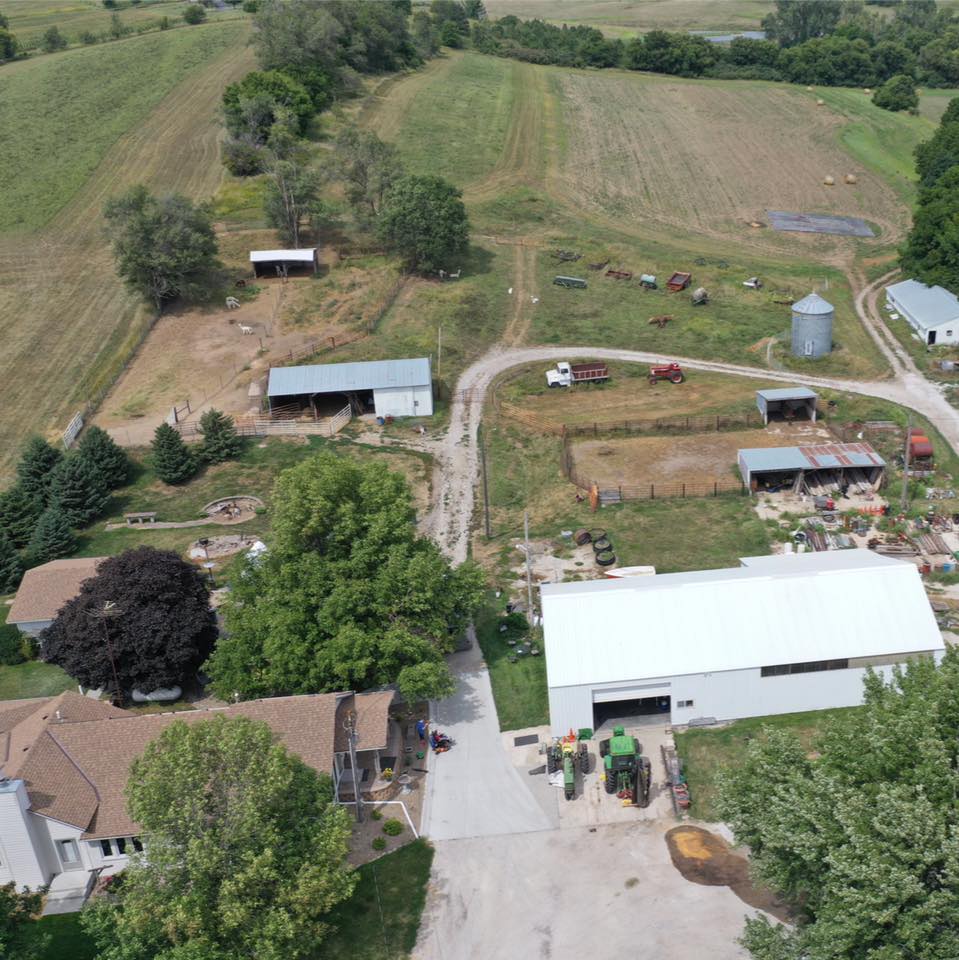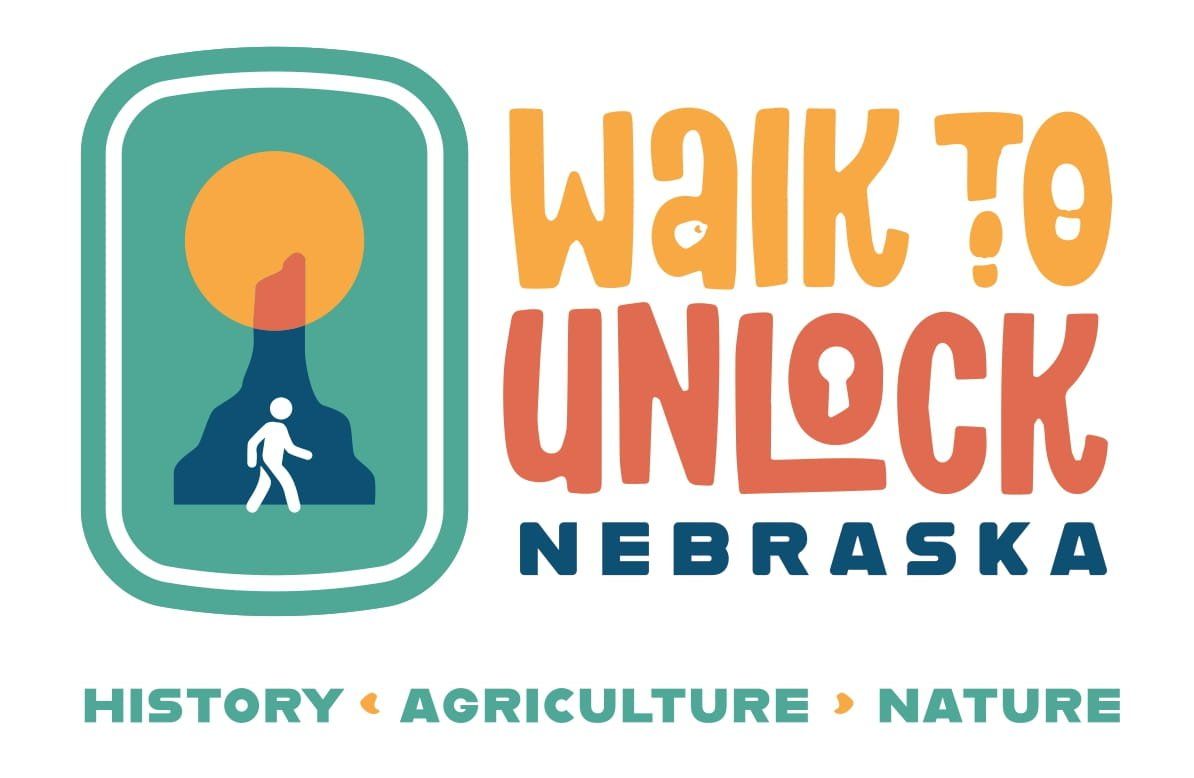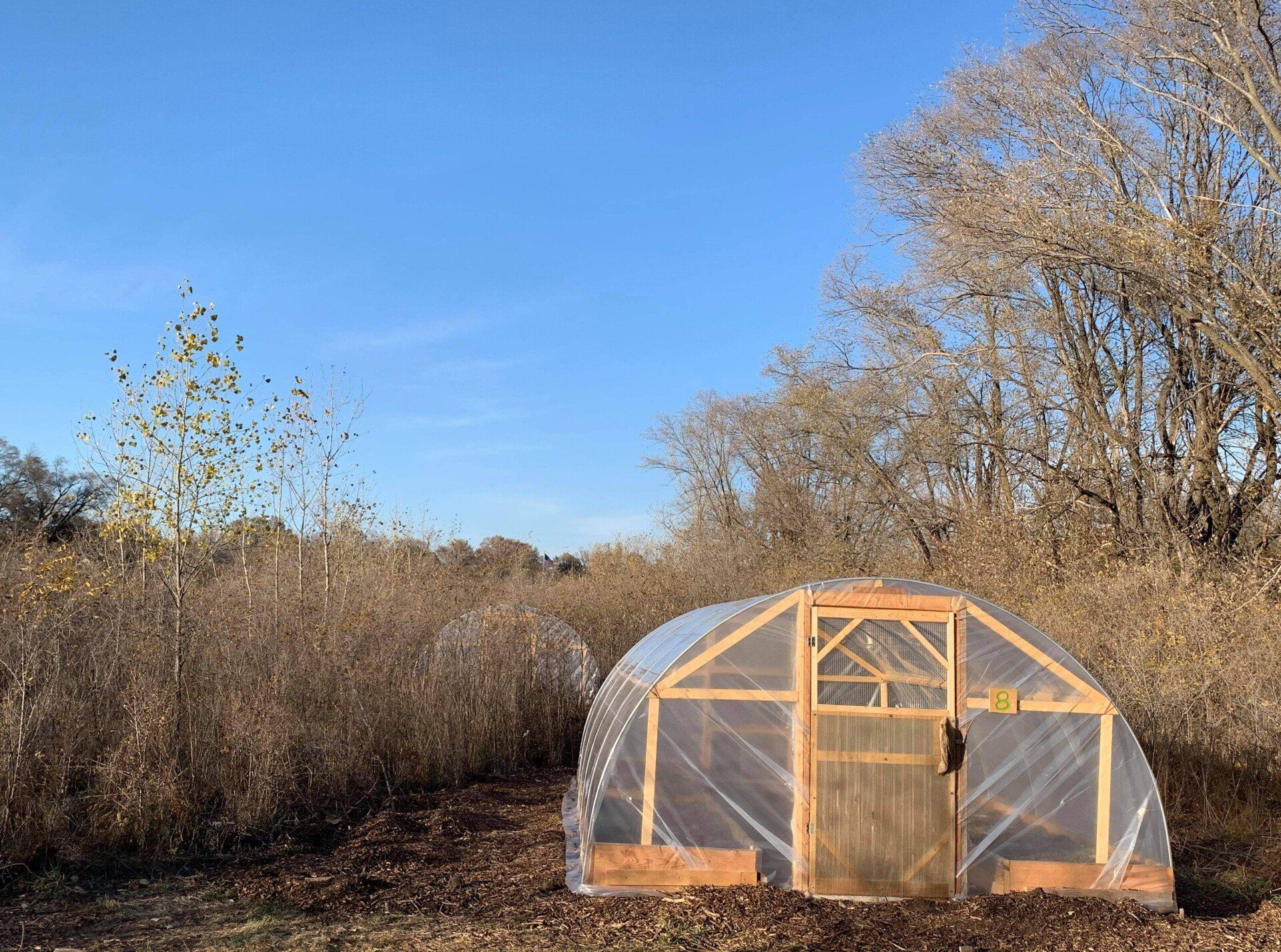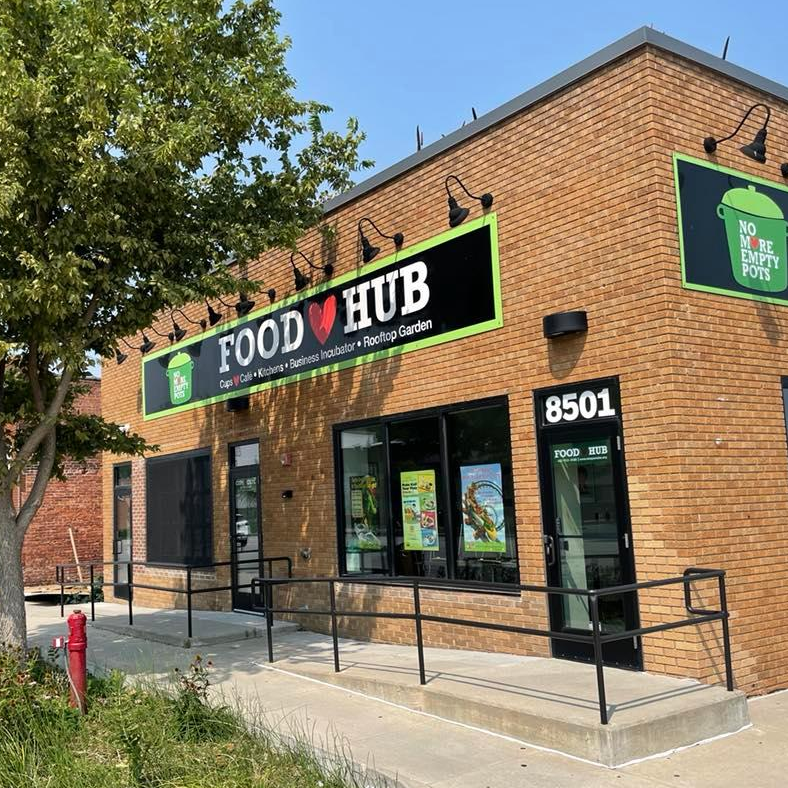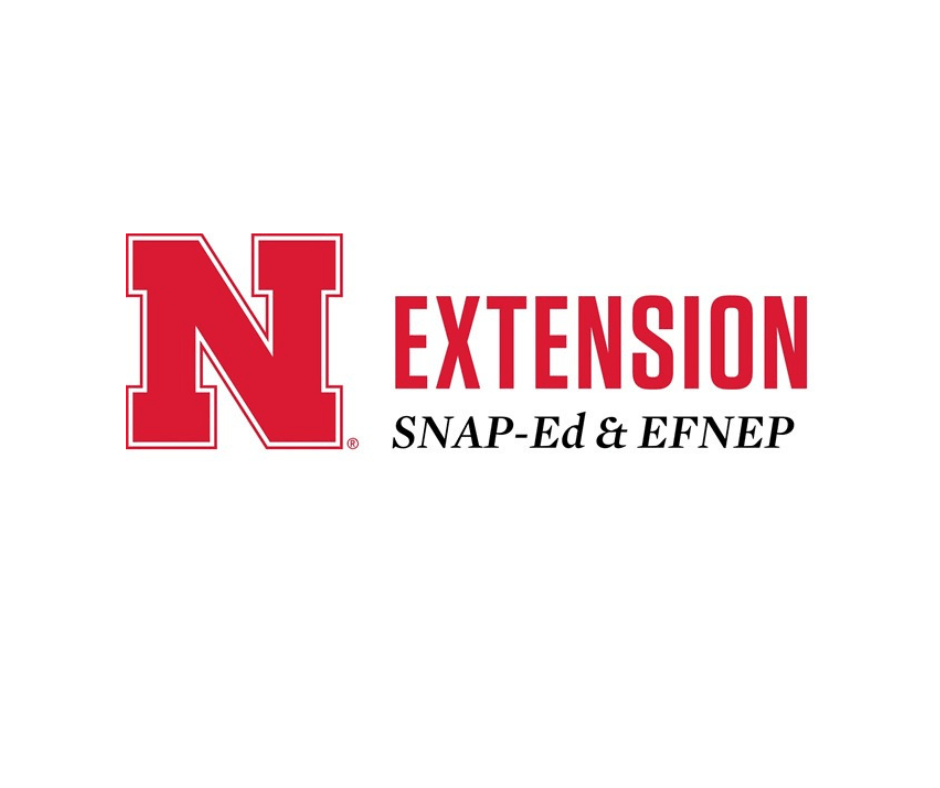Nebraska Farm to School program connects students and producers, provides schools with hands-on educational opportunities relating to local food
Nebraska Farm to School program connects students and producers, provides schools with hands-on educational opportunities
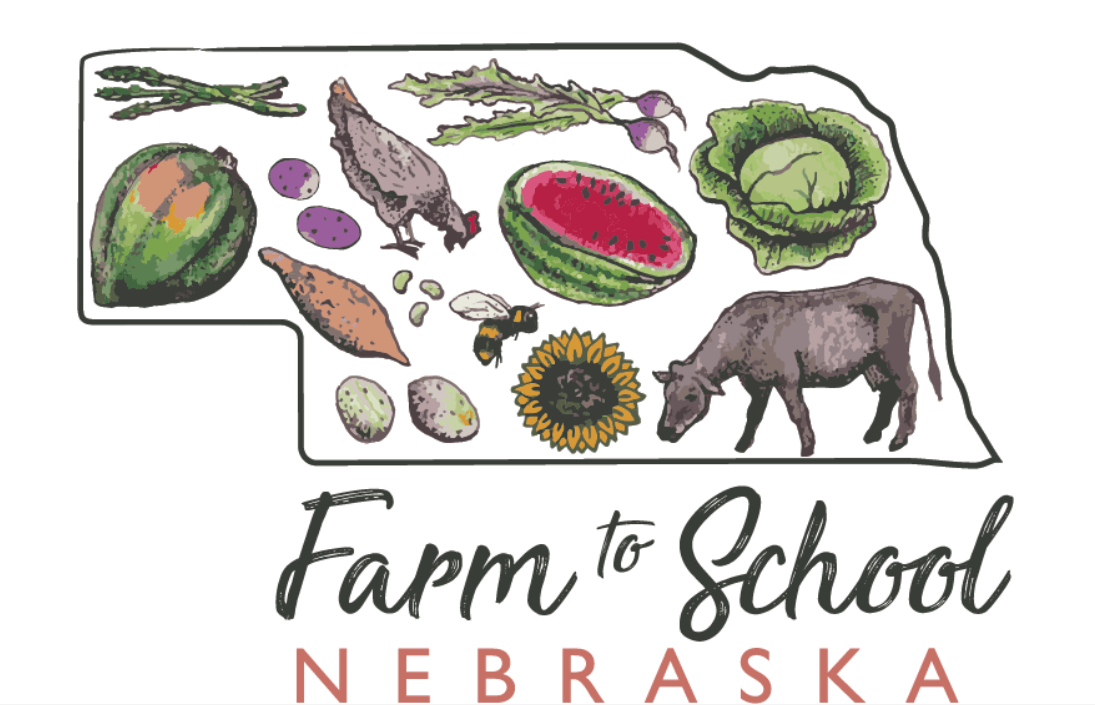
Photos from the Nebraska Farm to School webpage
A national effort to expose students to locally-produced food, farm to school engages more than 42,000 schools and 23 million students on food, health, agriculture and nutrition topics, according to the National Farm to School Network website.
Since 2021, Sarah Smith has been working full-time as the Nebraska Department of Education’s Farm to School Specialist. With the passage of the Nebraska Farm-to-School Program Act (LB396), Smith began coordinating the program and partnering with statewide organizations to build a communication network between farmers and schools.
“Procurement and sourcing local for the school meals program is a huge component of farm to school and makes a tremendous impact,” Smith says. “Farm to school also impacts the classroom and our communities by educating about nutrition and agriculture, environmental efforts and providing exploration of future career development.”
Along with these efforts, Nebraska Farm to School provides technical assistance to school staff, farmers and distributors regarding the availability of Nebraska produce, according to the Nebraska Legislature’s
unicameral update. Nebraska Farm to School also encourages school food services staff to implement locally grown food in school meals and provides students with hands-on learning activities, including farm visits, cooking demonstrations and school gardening and composting programs.
Smith says Nebraska Farm to School works with many organizations to further educational efforts and provide school, farm to school stakeholder, and producer trainings. Key partners include the Center for Rural Affairs, Nebraska Extension, No More Empty Pots and Buy Fresh, Buy Local Nebraska.
In addition to its educational outreach, Smith says Nebraska Farm to School is working to expand its
Harvest of the Month program, which promotes different Nebraska products each month and helps schools serve more local produce. Harvest of the Month allows students to taste test recipes that feature the local foods and offer feedback on use of those recipes in the school menus.
As part of the expansion, Smith says the goal is to make Harvest of the Month accessible to various educational settings, such as early child care facilities and centers. The team is also working with Native partners and the Center for Rural Affairs to teach about the value of traditional Indigenous foods.
“We’re expanding it to include summer items, and we’re expanding it to focus on food sovereignty efforts and Indigenous foods,” Smith says. “I’m really excited about that.”
Smith says she also looks forward to upcoming producer trainings. Called ‘Bringing the Farm to School,’ the trainings provide instruction and resources to help producers market their products to schools. In partnership with the Winnebago Food Sovereignty Council, the Nebraska Department of Education and farm to school partners in the state will offer a two-day training in October targeted to tribal producers that will instruct them on market opportunities with the local schools.
“There is an important intersection between connecting native students to traditional foods and local food production,” says Kristine Flyinghawk, Center for Rural Affairs Native Communities Manager. “Native communities have deep roots in food traditions. This training is specifically for our Native producers who can grow food for their own people. Food sovereignty intertwines not only our producers working the land but also our future generation who are eating a large percentage of their meals at school. We want to help tribal producers bring heirloom and traditional foods into our schools, while also receiving an economic boost. Meanwhile, our tribal communities gain even more food sovereignty.”
Currently, Nebraska farm to school partners are focusing on providing schools with opportunities to build their own farm to school goals and plans. Smith says the program recently concluded its Nebraska Farm to School Institute furthering this work. Through an application process, the Nebraska Department of Education and Nebraska Extension selected eight schools to participate in the institute. The schools then formed teams that included an administrator, a food service staff member and an Extension educator, among other diverse team members such as school board members, teachers and farmers.
Smith says the teams had access to a coach and existing model that helped form their action plans and goals. Nebraska Farm to School also provided technical assistance, peer-to-peer learning and networking opportunities.
“They created a vision statement and then really manageable, attainable goals and action plans for that school year to move farm to school work forward,” Smith says. “It was really fun to closely see some of the new steps forward the schools took because they had this team.”
Throughout the program, Smith says she enjoyed hearing about the schools’ accomplishments. One high school promoted Harvest of the Month by encouraging students to teach elementary schoolers about seasonal, local products. Other schools created tower gardens and worked with their students to build hydroponic units.
At Lincoln Pius X, students started a farm to school club, where they have toured farms and taste tested produce. In the Omaha Nation Public Schools, Smith says students of all grade levels have grown food through a greenhouse, medicinal garden and on-site community gardens.
“I’ve had a chance to spend some time in Macy at the Umoⁿhoⁿ Nation Public Schools, and they’re just incredible with the work they’re choosing to do with nature-based education in their kindergarten through 8th grade programs,” Smith says. “Additionally, their high school students are growing produce on seven acres as part of their JAG program [Jobs for America's Graduates]. That’s a program that comes full circle from planting, tending, harvesting, and finally providing this nutritious whole food option within their community. They are dedicated to food sovereignty and growing lifelong opportunities for their students. They are inspirational and valuable teachers for all communities across the state.”
Over the past year, Smith says she has learned the importance of embracing progress. While schools are always busy, she encourages them to incorporate Farm to School activities into their curriculum in any way they can.
“I think I’ve learned, especially with the institute, just the value of any step forward and recognizing it and celebrating it,” Smith says. “Schools are doing what they can in their unique situations and their own community environments. Just continuing to set those goals is really important.”
To learn more about Nebraska Farm to School, visit the
webpage.
